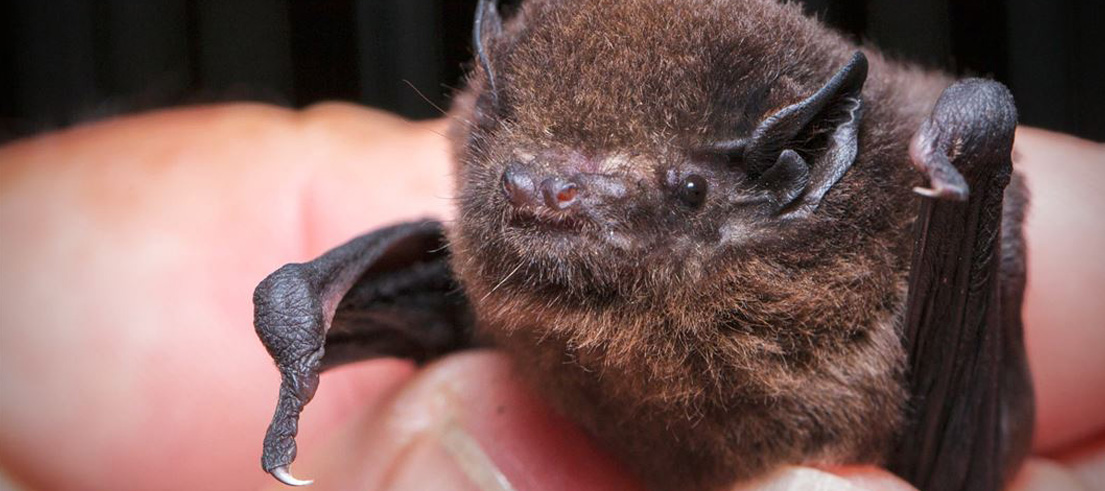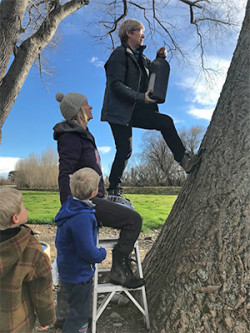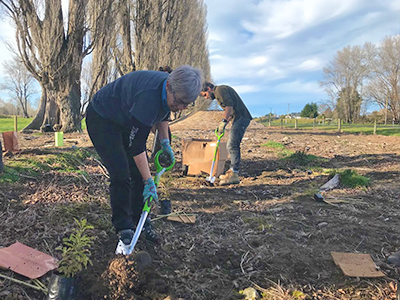
Local committee backs bat for Bird of the Year
The Ōrāri Temuka Ōpihi Pareora (OTOP) Water Zone Committee is backing the long-tailed bat/Pekapeka-tou-roa to take out this year's annual Bird of the Year/Te Manu Rongonui o te Tau competition.
Long-tailed bats live throughout the country and fly at dusk along forest edges using echolocation calls to hunt moths, mosquitoes and other insects. They are as small as your thumb, the wingspan of your hand, and weigh the same as a $2 coin. Long-tailed bats can fly up to 60km/h and cover tens of kilometres a night, eating up to a quarter of their body weight in that time.
They are also in serious trouble from habitat loss and introduced predators.

Barbara Gilchrist lending a hand, installing bat roosting boxes
OTOP backs the bat
OTOP water zone committee member and Timaru District councillor Barbara Gilchrist said although bats aren't technically birds, they have her full support in the competition.
"They have been snuck in under the cover of darkness and I'm really hoping they win," she said.
"It's really cool that they have been included, they're such a special part of our biodiversity and it's a great way to raise awareness about them," she added.
As a biodiversity champion for the district council, Barbara recognises the importance of protecting the species.
"We are so lucky to have them in our neck of the woods, it's vital we ensure they have safe, healthy habitats to live in," she said.
Committee's dedication to helping bats
The committee has supported many bat projects in the past.
In 2018, the committee and their families spent a day installing bat roosting boxes on old-aged trees near Te Ngāwai River at Pleasant Point. The boxes were donated by Forest and Bird and were placed into trees that bats like such as older poplars, willows, oaks and pine. Native seedlings were also planted.

Planting natives at Te Ngāwai River at Pleasant Point in 2018
In 2019, the committee helped cover fencing and re-planting costs for Geraldine landowners, after a colony of bats had made their property home. It meant they could keep stock away from the bats, and they were able to plant some natives which would attract prey. Committee chair Lucy Millar remembers the project fondly.
"It was a really awesome example of landowners taking the initiative and protecting the biodiversity on their property," she said.
Like Barbara, Lucy will also be voting for the bats this year.
"It's quite cool that they have been included, they definitely deserve a spot and are a special part of our biodiversity here in South Canterbury," she said.
More help is on the way for bats, with Toitū Te Whenua Land Information New Zealand funding a Jobs for Nature project with the Department of Conservation, which includes long-tailed bat habitat restoration along the Te Ngāwai River in South Canterbury. Artificial nest boxes will be installed to provide immediate roosting habitat, and tree planting will provide some long-term roost habitat in the future. The use of the artificial roosts and the population of the bat colony will be monitored over the three-year project.
